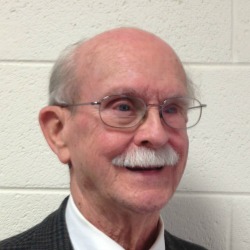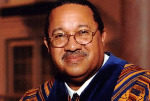This tool, coupled with the two preceding tools: Anger Wants Someone Else to Pay; and The Bowl that Holds the Acid (Anger) is Eaten by the Acid (Anger) creates a tremendous trio for those intent on solving problems and conquering anger.
We must understand how blame keeps wounds open. Blame, like anger, operates on a continuum. Anger wants someone to pay. Blame is the continuation of extracting payments by playing the blame-game.
It is said the oldest form of problem solving is blame shifting. Follow this account from Genesis 3:11-13:
“And he (God) said, Who told thee that thou wast naked?”
“And the man (Adam) said, The woman whom thou gavest to be with me, she gave me of the tree, and I did eat.”
“And the Lord God said unto the woman (Eve), What is this thou has done? And the woman said, The serpent beguiled me, and I did eat.”
The process of blaming is like ripping the scab off old wounds. The wound continues to fester and bleed. Animosity continues to infect one’s heart and mind. Truly, this is a downward spiral, but it has a solution.
During the counseling process, I note three things:
- Counseling is not always fun.
- Counseling is not always easy.
- Counseling is always worth it.
There’s only one antidote to blame shifting – forgiveness.
Forgiveness is one of the most misunderstood words in the English language. To understand the meaning of this word let’s look first at two things forgiveness is not.
To say, I forgive you, is not saying you are right and I am wrong. In a previous lesson we learned there is always a certain amount of right and a certain amount of wrong on both sides of every issue. Trying to determine who is most right and who is most wrong will never resolve the issue – it will only drive the wedge of separation deeper.
A statement accompanying the phrase, I’ll forgive you, is the emphasis placed on the conclusion – but I’ll never forget. This retort is usually met with the tart response: If you don’t forget you are not forgiving. This accusation is neither a true statement nor is this possible to accomplish.
We can forgive without forgetting. If fact, it is almost impossible to forget anything. Let’s examine the human factors involved in our inability to forget.
To illustrate this I compare our God-created brain to an old General Electric clock/radio/recorder/player I keep in my office for this teaching purpose. The discussion follows these lines:
Did you know G. E. has produced a tape player that can do something our God-created brain/recorder cannot do?
Illustration: By inserting a blank tape and selecting record, this clock/radio records anything it can hear.
Through the five senses of human nature: hearing, seeing, feeling, smelling and tasting our brain records everything our senses detect without our conscious thought or effort.
If we recorded something on our G. E. unit, and later decided we did not want to keep it, we simply tape over it and the original recording is automatically erased. Not so with our brain.
Our brain never erases previous recordings – it only records new messages.
The old message remains stored in our memory banks. Generally speaking, through prompting or provocation we can recall things we may have thought we had forgotten.
Repressed memory is our most extreme effort to not remember painful past events, but through proper approaches even these dark caverns of our memory can be opened.
How do we forgive without forgetting? Whenever or however, through prompting or provocation, a troublesome thought surfaces from our memory bank we can choose not to utter it or dwell on it. Forgiveness is an act of our will.
Remember the cliché: A closed mouth gathers no feet!
Next time: What is on the inside of you makes the difference in what you hear.
 Rev. Thomas (Tom) C. Lacy, Advisory Board Member of the Virginia Christian Alliance and Founder and Director, of New Hope Counseling Service and on the Board of Advisors of the Virginia Christian Alliance
Rev. Thomas (Tom) C. Lacy, Advisory Board Member of the Virginia Christian Alliance and Founder and Director, of New Hope Counseling Service and on the Board of Advisors of the Virginia Christian Alliance




